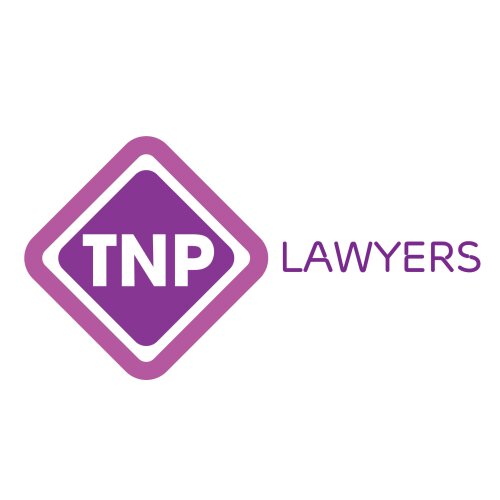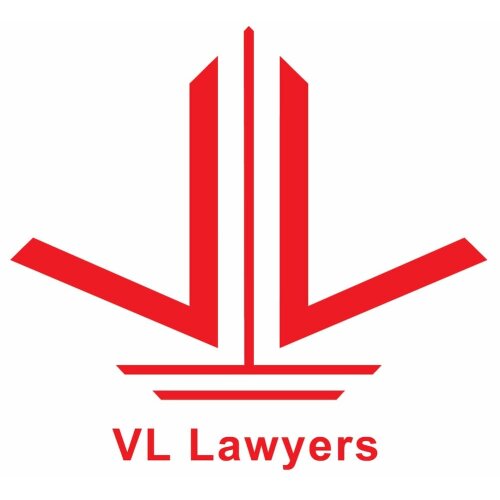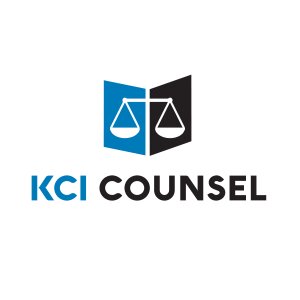Best Private Equity Lawyers in Ho Chi Minh City
Share your needs with us, get contacted by law firms.
Free. Takes 2 min.
List of the best lawyers in Ho Chi Minh City, Vietnam
![[DDC] DONG DU INTERNATIONAL ACCOUNTING, TAXES & LEGAL CONSULTING GROUP HCMC VIETNAM](https://lawzana.com/storage/firms/2690/17617306202399.jpg)
About Private Equity Law in Ho Chi Minh City, Vietnam
Private equity refers to investment funds and activities that acquire ownership interests in private companies. In Ho Chi Minh City, Vietnam, private equity plays a crucial role in fueling business development, expansion, and innovation. Local and foreign investors are increasingly drawn to the city’s dynamic start-up scene and the availability of growing enterprises seeking capital. As the private equity market in Vietnam continues to mature, legal frameworks have become more sophisticated to address the complexities of these transactions and to protect the interests of all parties involved.
Why You May Need a Lawyer
Private equity investments in Ho Chi Minh City can present a range of legal challenges due to the evolving regulatory environment and the often complex structures of these deals. You may need a lawyer if you are:
- Considering investing in or acquiring Vietnamese companies through private equity funds or direct investments.
- Seeking to structure domestic or cross-border private equity transactions.
- Negotiating shareholder agreements, sale and purchase agreements, or other transactional contracts.
- Ensuring compliance with Vietnamese foreign investment regulations.
- Conducting due diligence on target companies or projects.
- Resolving disputes between shareholders or partners.
- Navigating exit strategies such as IPOs or sales of portfolio companies.
- Looking to understand tax implications or optimize the tax structure of a transaction.
Lawyers experienced in private equity can provide crucial advice, help mitigate risks, and ensure that your investments comply with all local laws.
Local Laws Overview
Private equity activities in Ho Chi Minh City are governed by a combination of the Law on Enterprises, the Law on Investment, the Law on Securities, and related regulations issued by the government. Key points to consider include:
- Foreign Ownership Limits: Certain sectors cap the percentage of ownership foreigners can acquire in Vietnamese enterprises.
- Investment Approvals: Depending on the business line and ownership structure, investments may require approval by authorities such as the Department of Planning and Investment or the State Securities Commission.
- Shareholder Agreements: While common, only certain provisions are recognized and enforceable in Vietnamese courts.
- Convertible Instruments: Issuance and conversion of instruments like convertible bonds must comply with Vietnamese law.
- Mergers and Acquisitions: M&A transactions may trigger notification or registration requirements, especially if exceeding certain value or market share thresholds.
- Anti-corruption and AML Regulations: Entities must comply with anti-money laundering and anti-corruption laws as part of due diligence and transaction processes.
- Taxation: Gains from disposals may be subject to corporate income tax or capital gains tax, and proper structuring is essential.
The regulatory landscape is subject to frequent updates, underscoring the importance of professional legal counsel for all private equity activities.
Frequently Asked Questions
What is the typical legal structure for private equity deals in Ho Chi Minh City?
Most private equity deals use share purchase agreements, convertible bonds, or joint venture arrangements. Foreign funds may use offshore holding companies or Singaporean or Hong Kong entities for structuring purposes, but must comply with Vietnam’s foreign investment regulations.
Can foreigners fully own Vietnamese companies?
In many sectors, full foreign ownership is allowed, but some business lines impose foreign ownership caps or require Vietnamese partners. Consulting with a legal expert is crucial to determine sector-specific restrictions.
How is due diligence conducted for private equity investments?
Due diligence involves legal, financial, and commercial reviews of the target company. Areas of concern include title to assets, compliance with business licenses, corporate governance, litigation risks, and employment matters.
What approvals are required for private equity transactions?
Depending on the industry and investment amount, relevant approvals may be needed from the Department of Planning and Investment, the State Securities Commission, or sector-specific ministries.
Are shareholder agreements enforceable in Vietnam?
Certain provisions in shareholder agreements are enforceable, but some protections common in other jurisdictions may not be recognized. Vietnamese law prevails if there is a conflict.
How are exit strategies structured?
Exits may be through trade sales, IPOs, or share buybacks. The feasibility of each depends on market conditions, regulatory requirements, and provisions in transaction documents.
What tax considerations should investors keep in mind?
Taxation depends on deal structure, holding period, and residency status of the investor. Capital gains, corporate income tax, and withholding tax may apply.
How are disputes typically resolved?
Disputes may be settled through negotiation, mediation, Vietnamese courts, or international arbitration, depending on the contract’s dispute resolution clause.
Is legal documentation available in English?
Legal documents must be executed in Vietnamese, but English translations can be provided for reference. The Vietnamese version is legally binding.
What are the potential pitfalls for foreign investors?
Common challenges include rapidly changing regulations, unfamiliarity with local business practices, and enforceability of contractual rights. Working with skilled legal advisers helps mitigate these risks.
Additional Resources
If you are seeking more information or support regarding private equity in Ho Chi Minh City, consider contacting the following resources:
- Department of Planning and Investment of Ho Chi Minh City - Key authority for business licensing and investment registration.
- State Securities Commission of Vietnam - Regulator of securities-related private equity deals.
- Vietnam Chamber of Commerce and Industry (VCCI) - Offers business guidance and investor protection information.
- Vietnam Private Equity Association (VPEA) - Network for private equity professionals and resources.
- Leading international and Vietnamese law firms - Many have specialist teams for private equity transactions in Vietnam.
Next Steps
If you are considering or already involved in a private equity transaction in Ho Chi Minh City, Vietnam, the following steps are advisable:
- Identify your investment goals and preferred sectors.
- Consult with a lawyer who is experienced in private equity and Vietnamese law.
- Carry out thorough legal and financial due diligence on all prospective deals.
- Ensure all documents are drafted and reviewed in accordance with Vietnamese law and translated as needed.
- Secure all required governmental approvals and registrations before closing the transaction.
- Keep up-to-date on regulatory developments that could affect your investment.
Acting proactively and working closely with professionals will help safeguard your interests and contribute to the success of your private equity endeavors in Ho Chi Minh City.
Lawzana helps you find the best lawyers and law firms in Ho Chi Minh City through a curated and pre-screened list of qualified legal professionals. Our platform offers rankings and detailed profiles of attorneys and law firms, allowing you to compare based on practice areas, including Private Equity, experience, and client feedback.
Each profile includes a description of the firm's areas of practice, client reviews, team members and partners, year of establishment, spoken languages, office locations, contact information, social media presence, and any published articles or resources. Most firms on our platform speak English and are experienced in both local and international legal matters.
Get a quote from top-rated law firms in Ho Chi Minh City, Vietnam — quickly, securely, and without unnecessary hassle.
Disclaimer:
The information provided on this page is for general informational purposes only and does not constitute legal advice. While we strive to ensure the accuracy and relevance of the content, legal information may change over time, and interpretations of the law can vary. You should always consult with a qualified legal professional for advice specific to your situation.
We disclaim all liability for actions taken or not taken based on the content of this page. If you believe any information is incorrect or outdated, please contact us, and we will review and update it where appropriate.
















